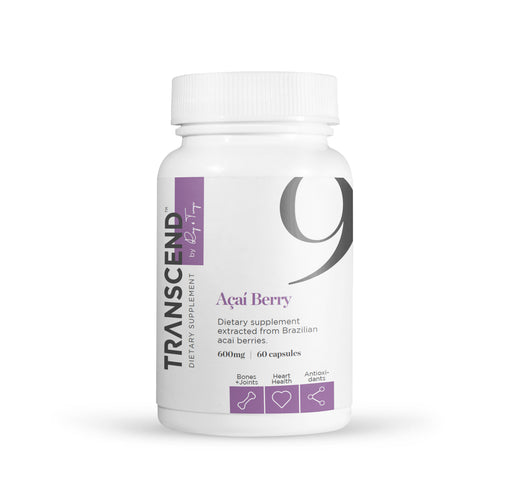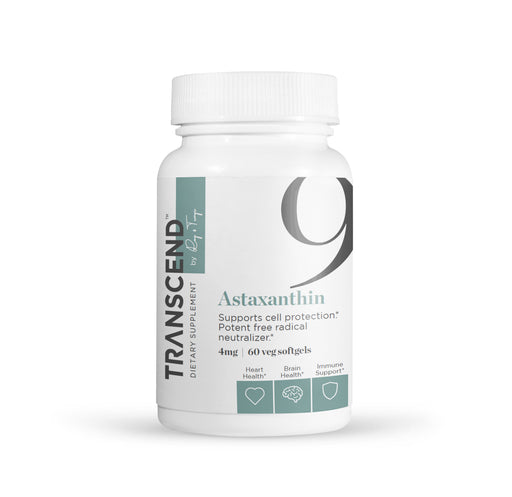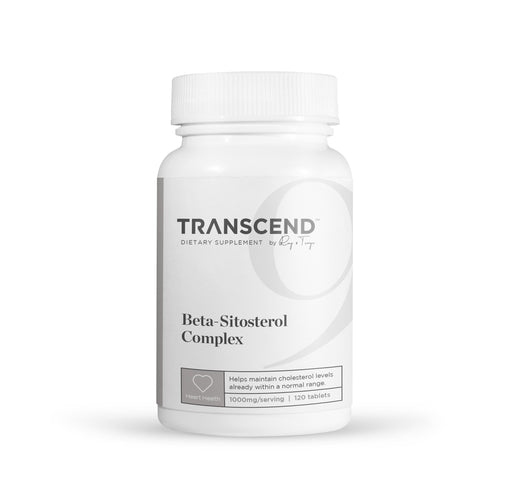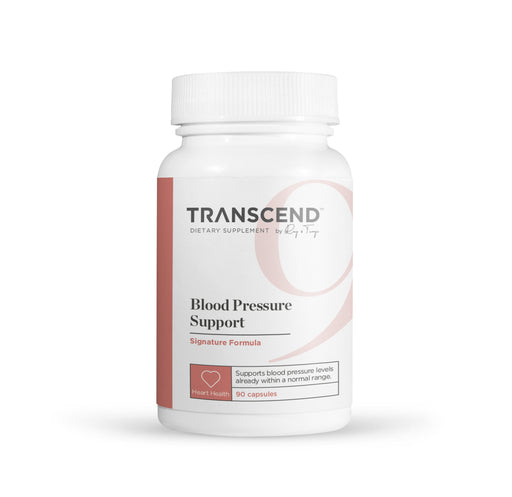
Acai Extract
Support with Increase blood antioxidant capacity Maintain proper cellular function Protect cardiovascular health The Acai Berry is a small deep ...
View full details
Your heart is the MVP of your body’s circulatory system. It’s a complex organ made up of the atria and ventricle chambers that work tirelessly every day to pump approximately 2,000 gallons of oxygenated blood, nutrients and hormones throughout your body by way of various arteries, veins and capillaries. Because your heart affects every part of your body, maintaining a healthy heart is essential to your survival.
Exercising regularly, eating a balanced diet, and identifying any possible factors that may increase your risk of heart disease are all part of an optimal heart-healthy lifestyle. Sounds pretty simple, right?
Sadly, despite the abundance of scientific literature on the importance of prioritizing heart health, cardiovascular disease (CVD) remains the leading cause of death for men and women around the world each year. Roughly 735,000 Americans will experience a heart attack this year alone – an alarming statistic, especially when we consider that CVD-related emergencies are almost entirely avoidable.
Beat Heart Disease by Identifying Risk Factors
High blood pressure, high cholesterol, and smoking are key risk factors for heart disease. While a few simple changes can dramatically reduce or eliminate these risks, nearly half (49%) of adults living in the U.S. currently have at least one of these factors.
In addition to the “Key Three,” there are several other conditions and lifestyle choices that put you at a higher risk for heart attack, stroke and other cardiovascular diseases:
It’s important to note that while some of these risk factors are easily diagnosed, others require medical screening by a physician in order to properly identify them. High blood cholesterol, for example, often goes undetected because this risk does not typically present obvious signs or symptoms.
Transcend Step 1 – Talk to Your Doctor
Regular check-ups and open communication with your doctor are critical for maintaining a healthy heart and lifestyle. A typical doctor-patient visit consists of three parts:
We discuss each part of the typical doctor-patient meeting in greater detail here.The American Heart Association also has several resources that can guide you through talking to your doctor about cardiovascular health.
Reducing Your Risk of a Heart Attack + How to Look at Heart Health
Becoming Heart Smart – Where to start?
It’s easy to get swept away by alarming statistics and gloomy pathology when talking about cardiovascular health. However, you’ll be happy to know that the road to keeping your heart beating is a lot less daunting than it may seem!
Small lifestyle changes, like getting the right amount of sleep, focusing on mental wellbeing, and increasing your daily activity levels, can have a tremendous impact on heart health. Here are a few healthy habits to get you started.
Try to get set aside 150 minutes per week for moderate aerobic exercise, or 75 minutes of vigorous exercise (or a combination of both). Avoid over-exerting yourself – even short bursts of physical activity can be beneficial for improving long-term health.
A colorful diet full of fruits, vegetables, whole grains, nuts, lean proteins and low-fat dairy products is an essential part of any healthy lifestyle. Foods high in anthocyanins, a potent class of antioxidants, also help to maintain a healthy cardiovascular system. A healthy diet help you feel more energetic and ensures that your body is receiving all of the essential nutrients needed to carry out important functions.
Blood pressure is the force of blood pushing against your blood vessel walls. High blood pressure (hypertension) caused by poor diet and stress can put you at greater risk for heart disease. Reducing caffeine and sodium intake, exercising regularly and managing stress are all effective ways of maintaining optimal blood pressure. For additional help, you may consider adding a Blood Pressure Support supplement to your daily routine.
4 Research Backed Heart Health Supplements
Strengthening Heart Healthy Habits for Life
No matter where you are in your journey towards living a longer and healthier life, it’s important to remember that heart-healthy habits are part of a lifelong commitment to yourself. Whether today is Day One, or Day 1,000 – take a few minutes to recognize your achievements, set new goals, and celebrate the incredible relationship you’re building with your healthiest self!

Support with Increase blood antioxidant capacity Maintain proper cellular function Protect cardiovascular health The Acai Berry is a small deep ...
View full details
Healthy Eyes, Brain and Nervous System Potent carotenoid antioxidant Promotes healthy anti-inflammatory response Formulated with Zanthin® for eye...
View full details
Beta-Sitosterol Complex 1000 mg * (Plant phytosterols, including beta-sitosterol, campesterol, stigmasterol, brassicasterol, and sitostanol.) Main...
View full details
A Kurzweil + Grossman Formula Heart Health Maintain normal blood pressure Protect organ health Natural ingredients Blood pressure is composed of...
View full details
Leave a comment